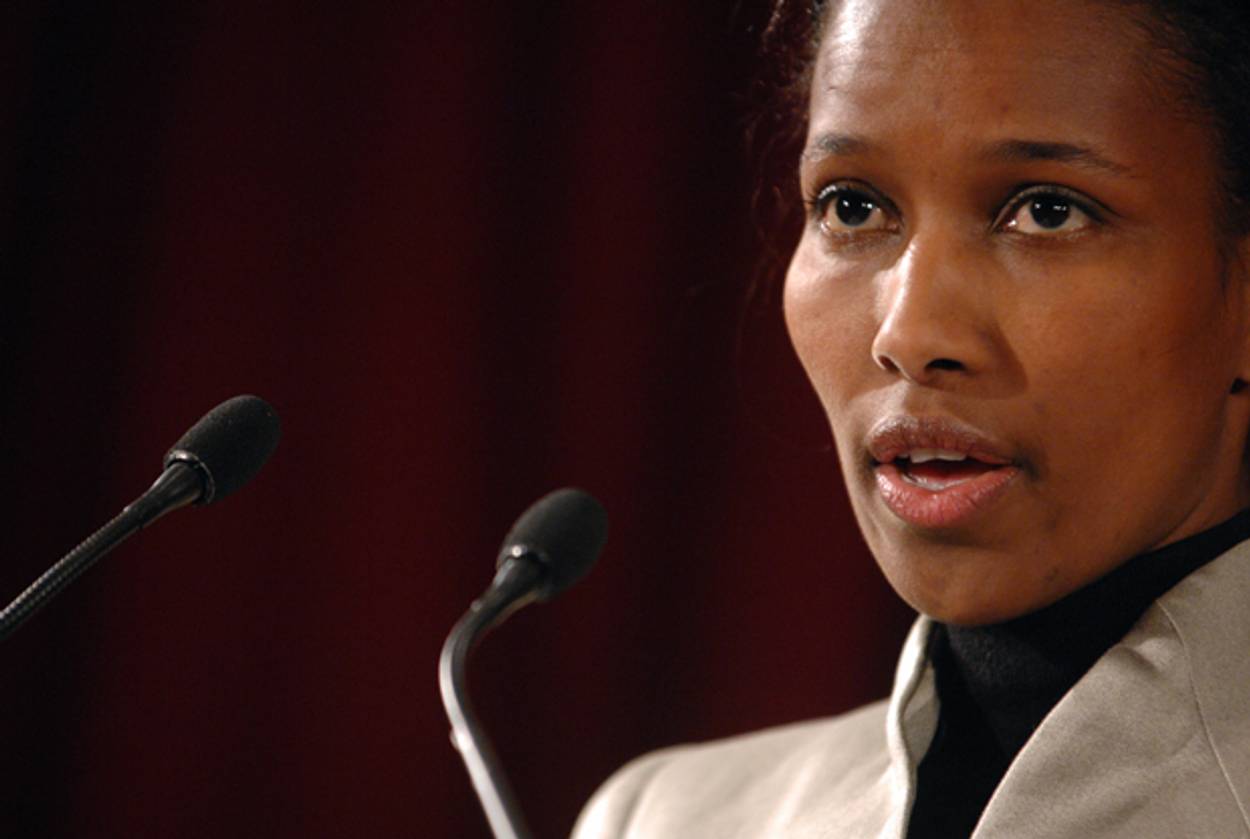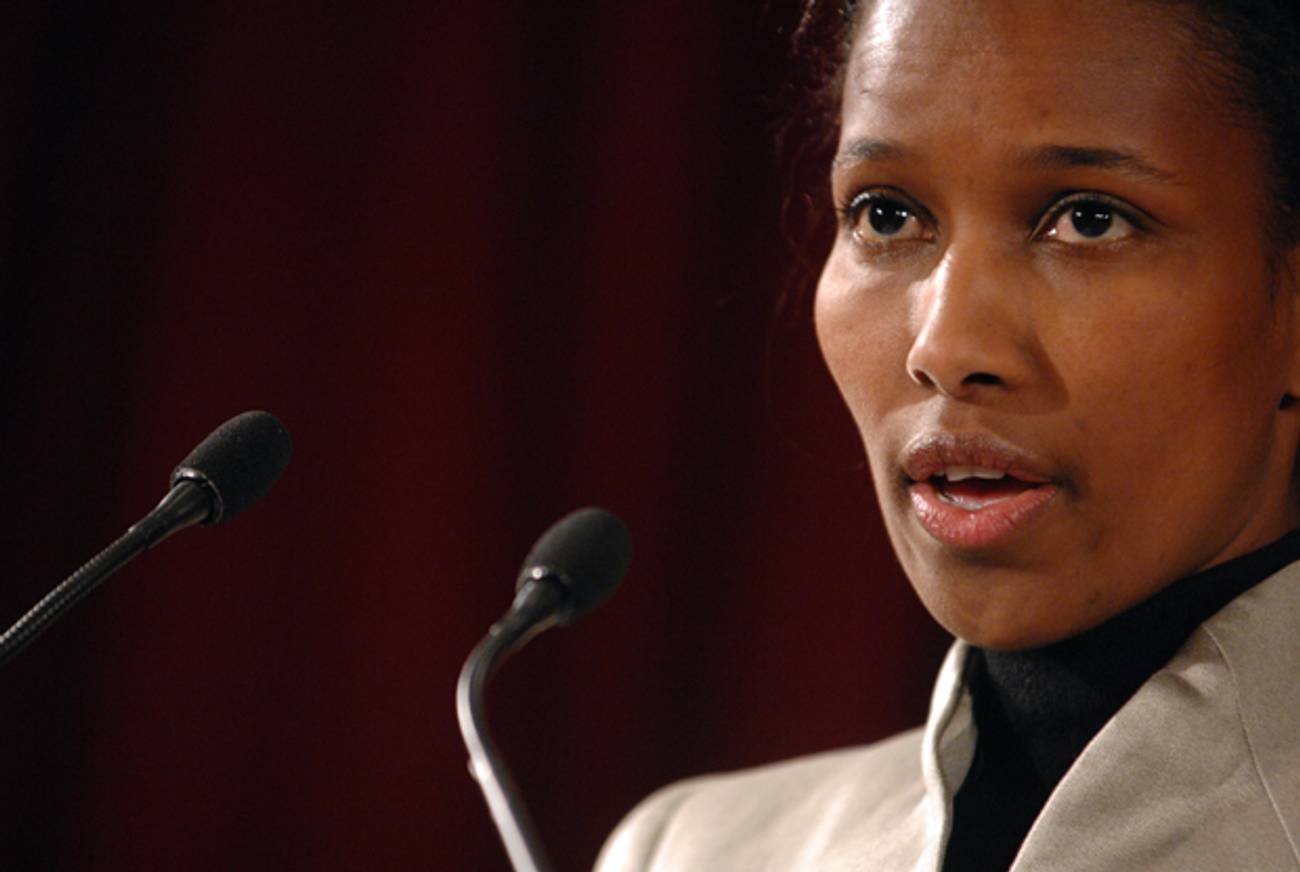Tablet Gives Moses Award to Ayaan Hirsi Ali
After Brandeis president disgracefully revokes her honorary degree




Brandeis University’s decision to withdraw an honorary degree from the activist and writer Ayaan Hirsi Ali is yet another shameful reminder of how limp the commitment of Jewish institutions to open discourse has grown, and how threatened we’ve all become by a public conversation that permits the expression of nuanced, complicated, even at times offensive ideas—meaning, any ideas at all worth their salt.
Hirsi Ali is a controversial figure in some quarters, and greatly admired in others. Many of her achievements ought to be lauded and some of her statements—in a long career of speaking passionately and openly about her own experience as a black woman who was born a Muslim in Somalia and became a leading feminist and atheist thinker and campaigner in the West—ought to be challenged. Brandeis should have been acutely aware of Hirsi Ali’s work and ideas, and could have privately decided, when discussing whether or not to confer such an honor, that Hirsi Ali was or wasn’t an appropriate recipient of the university’s laurels. But succumbing to pressure and retracting a degree once it was offered strikes us as a Soviet-style tactic that props up an outspoken dissident only to expose her to public pillory. This is simply inexcusable, regardless of anyone’s opinions about Hirsi Ali’s politics (and yes, we made the same argument when the Ramaz School rescinded its invitation to Columbia professor Rashid Khalidi).
The blame here lies squarely at the feet of University President Fred Lawrence, who apparently has no idea who Louis Brandeis was—a passionate American progressive whose deepest emotional, moral and intellectual commitments were to free and open discourse, the sanctity of individual thought and feeling, social justice for oppressed groups, and Zionism. There is every reason to imagine that Brandeis would have enjoyed hearing Ayaan Hirsi Ali speak—regardless of whether he agreed with her or not, and maybe especially if not—and would have found Lawrence’s decision repugnant.
Hirsi Ali has been gracious in the aftermath of this debacle, and we are eager to prove to her, and to ourselves, that there are Jewish institutions that aren’t afraid of unfettered discourse. To that end, and on the cusp of Passover, we are honored to offer her our first-ever, and very impromptu, Moses Award, a distinction merited by all those who have struggled to carry their people from the house of bondage and into liberty. We recommend that all of our readers buy her books and read her articles, and reach their own opinions about the merits of her arguments.
From the editors of Tablet Magazine.